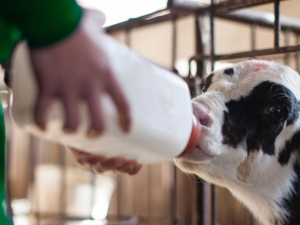Teamwork makes antimicrobials work
World antimicrobial resistance (AMR) Awareness Week begins today, and New Zealand Food Safety (NZFS) says you too can do your part.
 AMR occurs when bacteria, viruses and parasites no longer respond to medicine, making them difficult or impossible to treat.
AMR occurs when bacteria, viruses and parasites no longer respond to medicine, making them difficult or impossible to treat.
The Veterinary Council of New Zealand (VCNZ), which regulates veterinarians and sets standards to support responsible antimicrobial use among veterinarians, is in the throes of developing a new strategy to minimize the risk of Antimicrobial resistance (AMR) in New Zealand animals.
Antimicrobial resistance is one of the top 10 global public health threats and occurs when bacteria, viruses and parasites no longer respond to medicine, making them difficult or impossible to treat.
VCNZ chief executive and registrar Iain McLachlan says the strategy will complement initiatives in other parts of the sector, including the New Zealand Veterinary Association (NZVA) and the Ministry for Primary Industries (MPI).
“Veterinarians, as stewards of antimicrobial products and the sole authorizer of their use in animals, have a critical role to play in managing the risks of AMR,” says McLachlan.
“We’re looking forward to getting this work underway and will be consulting right across the sector to ensure a wide range of perspectives are captured,” he says.
A steering group has been established which will review how antibiotics are currently used and antimicrobial stewardship by New Zealand veterinarians.
Members of the group will also interview stakeholders and evaluate AMR strategies. A discussion document summarising the group’s research will be widely consulted on before the strategy is finalised.
A New Zealand-first native tree study has highlighted the Bioeconomy Science Institute's position as a forestry research leader.
Hemp fibre processor Rubisco is relocating its core processing facility to Ashburton as part of a $20-$30 million expansion to leverage what it says is an accelerating global demand for sustainable and renewable fibres.
Tradition meets some of the latest in technology at the 2026 East Coast Farming Expo.
OPINION: Trade Minister Todd McClay and the trade negotiator in government have presented Kiwis with an amazing gift for 2026 - a long awaited and critical free trade deal with India.
Former Agriculture Minister Nathan Guy says he's excited about his new role as NZ's Special Agricultural Trade Envoy.
A pillar of New Zealand's horticultural industry, Dr Stuart Davis, was farewelled at a well-attended funeral service in Tuakau, South Auckland, on December 18.

OPINION: If the hand-wringing, cravat and bow-tie wearing commentariat of a left-leaning persuasion had any influence on global markets, we'd…
OPINION: With Winston Peters playing politics with the PM's Indian FTA, all eyes will be on Labour who have the…